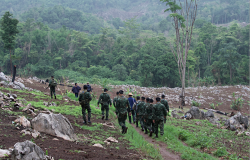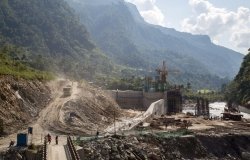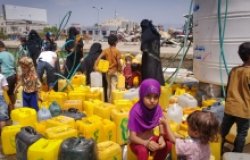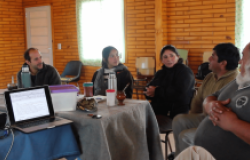Trade Distortions Hurt Developing Countries---and U.S.
January's letter from U.S. Trade Representative Robert Zoellick to World Trade Organization trade ministers proposes that the U.S. eliminate export subsidies for agriculture. William Krist, author of a new report--Making Doha a Developmental Round--says that this important step is just what the doctor ordered for developing countries and the United States.
Washington, D.C.--- The current round of multilateral trade negotiations has stalled because the U.S., the European Union, and Japan failed to make far reaching proposals to open agricultural markets, according to a new report from the Woodrow Wilson Center's Environmental Change and Security Project.
However, Monday's letter from U.S. Trade Representative Robert Zoellick to World Trade Organization trade ministers indicates the U.S. is prepared to take the lead to energize the Doha negotiations. "Ambassador Zoellick's proposal to eliminate export subsidies for agriculture is just what the doctor ordered," says William Krist, a senior policy scholar at the Wilson Center and the author of Making Doha a Developmental Round.
"Addressing developing countries' requests is actually in our own interests. Our high agricultural barriers and enormous subsidies cost our domestic consumers money and distort our capital markets," says Krist.
Krist's report Making Doha a Developmental Round extensively reviews developing countries' demands that the U.S., the European Union and other developed countries open their agricultural markets and reduce trade-distorting subsidies. The least-developed countries—the poorest of the poor—are also seeking improved access to world markets for their labor-intensive products.
The current round of international trade negotiations was launched at Doha, Qatar in November 2001, but negotiations stalled at meetings in Cancun in September 2003. Although the parties had agreed this round would focus on the problems and concerns of developing countries, particularly the least-developed, Krist says: "Negotiations stalled because developed country offers on agriculture did not go far enough to encourage developing countries to seriously enter into negotiations."
Making Doha a Developmental Round argues that negotiators must understand what the least-developed countries are seeking, and then craft negotiating packages that meet these demands. At the same time, the agreements must be palatable to Congress and the private sector.
Making Doha a Developmental Round is available here for download. You may also request a hard copy by contacting Ariel Mendez at 202/691-4185 or mendeza@wwic.si.edu.
The Environmental Change and Security Project explores the connections among population growth, environmental change, disease, conflict, and security. Through its meetings, its publications, its website, and the original research carried out by its staff and scholars, ECSP serves as an information clearinghouse on these issues, and creates special programming and publications and encourages dialogue among scholars, policymakers, and nongovernmental organizations.
The Woodrow Wilson International Center for Scholars is the living, national memorial to President Wilson established by Congress in 1968 and headquartered in Washington, D.C. The Center establishes and maintains a neutral forum for free, open, and informed dialogue. It is a nonpartisan institution, supported by public and private funds and engaged in the study of national and world affairs.
Related Links
Related Program

Environmental Change and Security Program
The Environmental Change and Security Program (ECSP) explores the connections between environmental change, health, and population dynamics and their links to conflict, human insecurity, and foreign policy. Read more










